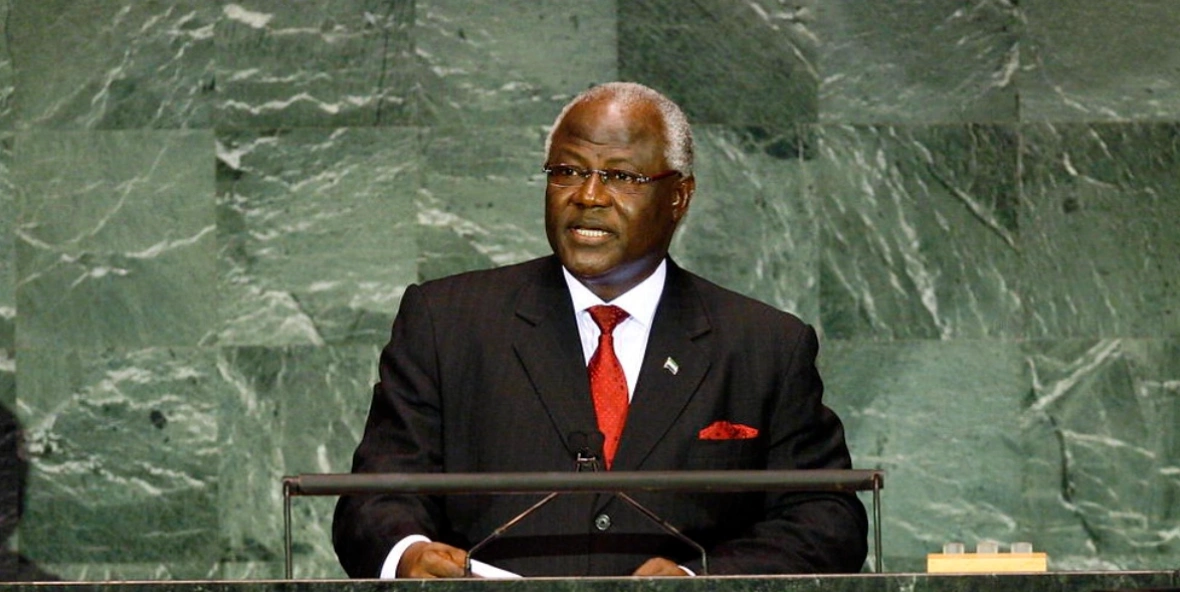By Dianna Games
The need for unity in Sierra Leone in the wake of a brutal 11-year civil war, which ended in 2002 and left an estimated 50,000 people dead and the economy in tatters, is always top of mind.
Former Sierra Leone president Ernest Bai Koroma has used his retirement years to speak about the dangers to democracy in Africa of a rising tide of coups and he has travelled the continent to raise awareness of the issues and discuss solutions with a range of governments, institutions and diplomats.
And yet, in a twist of fate, the man who has become a sought-after elder statesman in Africa, on Wednesday last week found himself in a courtroom in his own country being charged with treason for allegedly taking part in a suspected coup d’etat late last year.
This was despite an offer made by leaders of the regional bloc Ecowas (the Economic Community of West African States), the day before to “temporarily relocate” Koroma to Nigeria in return for dropping the charges against him and ensuring all his perks as a former president remain in place.
The deal was brokered by Nigerian President Bola Tinubu as the chair of Ecowas, Senegal’s President Macky Sall and Ghana’s leader, Nana Akufo-Addo, who were copied in the letter proposing the deal that was sent to President Julius Maada Bio.
Sall and Akufo-Addo had earlier discussed the security situation in the country, and allegations of Koroma’s involvement, with Bio during a visit to Freetown in December.
However, the deal has been rejected by Sierra Leone, and the trial is now set down for 17 January.
Allegations of a failed coup arose from a series of violent attacks in the capital, Freetown, on 26 November, which included raids on an armoury in the city, and on two barracks, two prisons and two police stations.
According to the Ministry of Information, the fighting left 21 people dead, 18 of them members of the security services, and about 2,000 prisoners were released.
Koroma was not spared. A military guard provided to him by the state was shot dead inside the former president’s residence in Freetown and another guard, also provided by the state, was abducted and taken to an unknown location until he surfaced a few days later in the hands of the police.
Several other Koroma security guards at his Freetown and Makeni homes were detained without charge or access to lawyers and the residences were ransacked by state security, according to the former president’s team.
Some of the former president’s close friends were also briefly detained.
By mid-December, Koroma had been placed under effective house arrest in his Freetown home.













